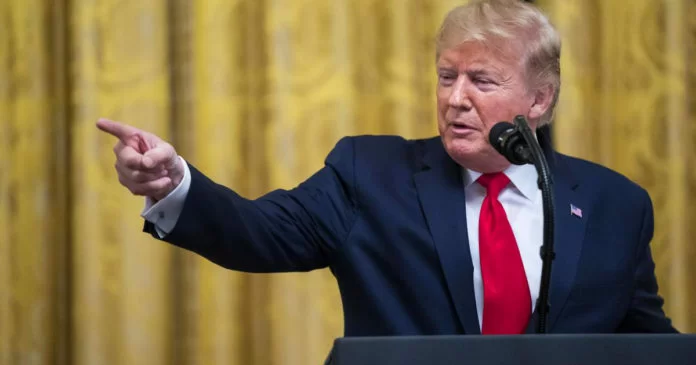1. US and Iran ready to let slip the dogs of war
First wind of 2020 is, unfortunately, a wind of war: an US drone killed Qassem Soleimani at Baghdad airport, where the head of the Quds Force, the Pasdaran elite unit, was in an Iraqi-mediated negotiation with the Saudi Arabia. The Iranian reaction was not long in coming: American bases were hit, without victims, by “warned” missiles, two of which accidentally shot down a Ukrainian flight with 176 passengers on board. In this pre-world war “drama”, Europe intervenes to chill down everybody and to turn the war tones into mature tones, never as much mature as Iranian students ones, who did not want to step on the US and Israeli flags during a protest, giving a great lesson in civility to earth’s big bosses. There are many interpretations of Trump’s attack, soon later kind of forgotten, when he throw himself against Bolton, a “warmonger” who, he says, “scares” him, and well, that’s quite understandable, since the former National Security Advisor, whom he appointed and then fired, is holding the dangerous key to his impeachment: a book proving Trump pressing the Ukrainian president, that book’s publication is a tug of war.
2. China, torn between huge investments and a viral plague
In the meantime, the president is dealing with other affairs, bossing over oceans and lands, threatening and imposing sanctions, duties and agreements good only to the USA. He intrudes on others issues, such as in Hong Kong to oppose China, as in Venezuela to oppose China again and to hamper the purchase of “dollar free” oil, as in Ecuador, to oppose China one more time and always for the oil, until China is forced to sign a treaty to avoid tariffs and, right after, to face the virulent plague of Coronavirus. A very active China, before these hitches happened, especially in Africa with huge investments in infrastructure, aiming at lithium and cobalt: the gold of the future. Russia targets Africa too and it duels with China. Africa instead wants to grow and to become united, it wants to get rid of the annoying colonial residues and to adopt a common currency. Macron realizes it, he doesn’t waste time and he solves the problem: in 2020 Cfa will be replaced by the Eco in 15 states, even in the English-speaking ones dealing with China, which didn’t have that problem and see this new French interference with suspicion and disappointment.
3. The major theaters of war around the world
It is therefore these three – USA, China and Russia – the titans that collide and create real plates in friction, transferred to other conflict fields too, where they support one or the other side, as in Yemen, Syria, Libya and the Middle East, where if they do not have an active role, they still contribute with different kind of support, including supplies of weapons. The war in Libya in particular has become a war of others: Russia, Turkey, the United Arab Emirates, all in the fray. Truce and agreement are proposed in Berlin but at the same time embargo is not respected by some countries, such as Egypt and United Arab Emirates, which send cargo planes full of weapons. No wonder if the agreement does not arrive, oil wells are closed and fire starts again. Italy is worried and calls for USA’s help, especially because of migrations issue, in fact from February 2nd the Italy-Libya memorandum on migrants will be officially extended for 3 more years and without promised changes by the government. Because of NGOs criminalization, and closed harbours, migration flow has visibly decreased on the Mediterranean route, with two consequences: 1. Human rights are violated and all kind of horrible things happen in detention centers in Libya, for which the UN and Aya have finally begun to investigate; 2. Increase in the flow of migrants on the Balkan route with same horrible things happening, with Europe’s silent complicity.
4. Human rights, what happened to them?
At this point one wonders what happened to Geneva Convention, Human Rights, and to all other multilateral agreements that have enshrined international law, since an undisturbed president decides to bomb another country, or hundreds of thousands of people’s rights are violated. Who is the guarantor? It looks like we are in the Far West, now the law of the fittest rules, and the world is no more capable of making alliances. This was demonstrated by COP25s failure, the Climate Conference, and by World Economic Forum in Davos, where, despite there was a talk on economic system’s change in order to block CO2 emissions, it eventually happened that fossil companies denounced governments to block the ecological transition, supported by heads of state such as Trump, who praised the American economic model, with guaranteed growth, and who encouraged the WEF audience to follow it, while he also canceled Obama’s anti-pollution measures. It is a pity that he ignored that the growth he talkes about is only for 1% of world’s population and that all over the world streets are inflamed by global rebellion against neoliberalism.
5. The role of Europe: acting as a peacemaker
To be forgiven, however, and to show that multilateral agreements are possible if sponsored by him, Trump produced 181 pages of a Plan for the resolution of conflicts in the Middle East, which he himself defined “the agreement of the century”, and which made mad the entire Muslim world, including Erdogan, his “dear friend” on the Syrian/Kurdish front, who has now turned against him and has bitterly criticized his terms of agreement, taking the opportunity to urge F-35s delivery by US. In the meantime, however, paradoxically, the wealthy Arab oil countries of the Gulf are working hard to implement the energy revolution, what a blast. What about Europe? Europe acts as a peacemaker, as a buffer between the China-Russia bloc and the US, sometimes supporting multilateral agreements, sometimes not. On one hand Europe finds unity drafting the European Green Deal, which however has its knots to untie, on the other hand it loses pieces: just from today, 31 January 2020, Brexit will come into force, after European Parliament’s ratification Queen’s signature, even if Scotland and Ireland do not agree and want to propose a new referendum. Author: Cecilia Capanna


